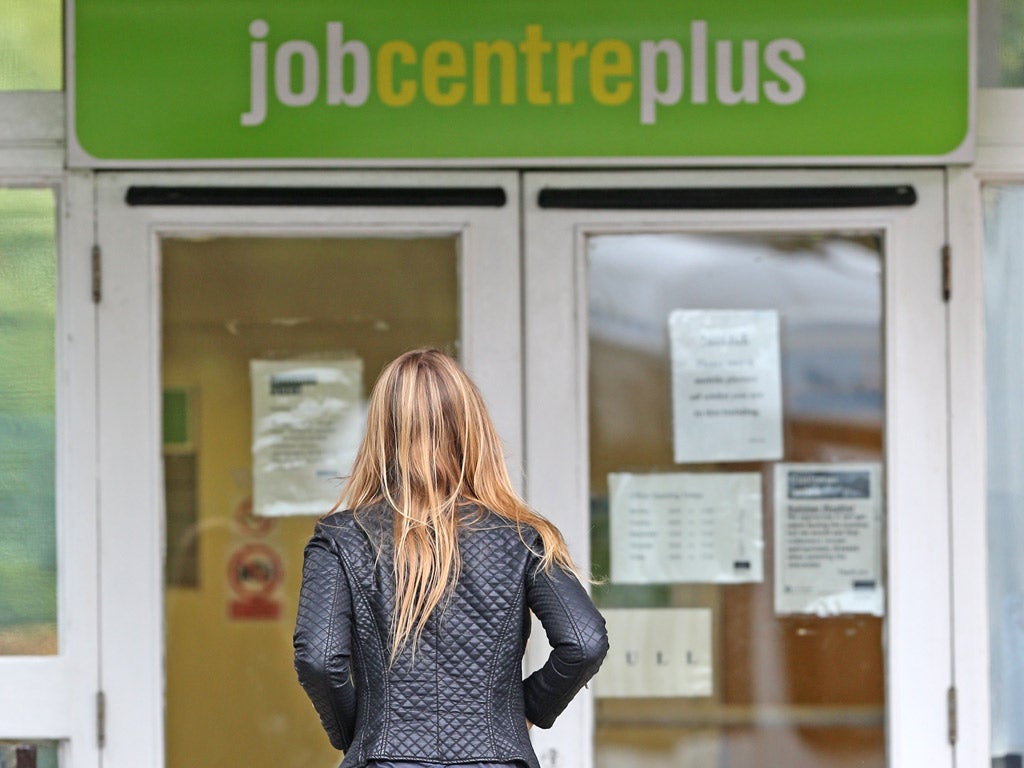Young people have been hit hard, but the government and employers can both help them into jobs
The industrialised world is struggling out of the deepest recession since WWII, says Hamish McRae. So what can be done to fix the damage to young people’s lives?


The young are hit hardest by unemployment because not having a job, or losing a job early in a career, often blights them for life. So while everyone suffers in a recession, young people suffer worst. The developed world is now struggling out of the deepest recession since the Second World War, so there is the gravest danger that people in their twenties will be disadvantaged long after recovery has taken hold.
The latest UK figures for unemployment show it has grown from 3.9 per cent to 4.1 per cent in the three months to July, but that is artificial in the sense that many jobs are being protected by the furlough scheme. If you take employment, rather than unemployment, and look at August, there was a fall of 156,000 jobs for 16 to 24-year-olds. You can’t be furloughed if you are entering the job market and have not yet got your first post.
Look around the world and different countries have different policies, and very different outcomes. In the US the aim has been to allow unemployment to rise and then punch up demand so that people are quickly back to work. The result has been that youth unemployment hit 27 per cent in April, but now has come back to below 15 per cent. In Sweden it reached nearly 29 per cent and in Spain it went to over 40 per cent. By contrast, in Germany youth unemployment is only 5.7 per cent. So is Germany doing something right while much of the rest of the world is doing something wrong?
It is not as simple as that because there are aspects of the German labour market that do not work very fairly. Unemployment has been held down partly by the system of mini-jobs, or marginal employment, where people cannot earn more than €450 (£410) a month and have to piece together enough money to live on by working for several employers. Roughly 20 per cent of all jobs in Germany are these mini-jobs. Most people in them are young, and they have been particularly hard-hit by the crisis. Unlike regular workers they do not benefit from the support from government for people put on short-time working.
Having said that, however, the mainstream German job market does seem to have performed reasonably well. Some two-thirds of school leavers go into vocational training, and for them this is the normal path to a job. The government has beefed up this system, giving companies bonuses to step up their training, or take trainees from other companies that cannot afford to keep people on. But there is no point in training people for jobs if those jobs are not there in the future. The weakness of the German model more generally is that employment in the key motor industry is likely to shrink rapidly as companies switch from making internal combustion engines to the much simpler electric motors.
So what’s to be done? There are clearly some general lessons from Germany, in particular that on-the-job training can give many young people a good start in life, whereas some university courses alas do not. But in an emergency every country has to work with the industrial structure, and the labour force, it has got. Everywhere, every country, has to hope for a reasonable overall recovery and do what it can to gun things up. Meanwhile the challenge is how to patch the labour market to help young people over the hump in unemployment so that their long-term careers are damaged as little as possible.
Here there are lots of things that can be done. The German solution is not for all. But the UK could for example help pay companies to take on their usual crop of graduates. There could be a further investment in training more generally. Sweden could use the relatively robust recovery to encourage employers to take on young people, initially on a temporary basis.
The gigantic, flexible, chaotic US labour market is already sucking young people back into employment, so the challenge is to get individual employers to take on that extra person for a while until general employment recovers. This cannot be done on national or even state-wide basis. It has to be local, and has to be driven by the private sector. It is almost certainly happening already under the radar, but there isn’t much evidence yet.
As for the UK, Scotland has a “youth guarantee” scheme, which seeks to guarantee a place at a university, an apprenticeship or some other activity, and that is helpful. And the Treasury has the £2bn “kickstart” programme.
But while such efforts of course help, there is a bigger issue – and a bigger prize. It is to find ways of using this emergency to help young people be more resilient and adaptive in the jobs of the future. This is not a national thing; it is a global one. We have no idea what the jobs of the future will be. We can guess but we will probably be wrong. What we do know is that jobs will need to be done, that people doing them need to be valued, and that all societies have to help young people build their human capital to do them.





Join our commenting forum
Join thought-provoking conversations, follow other Independent readers and see their replies
Comments